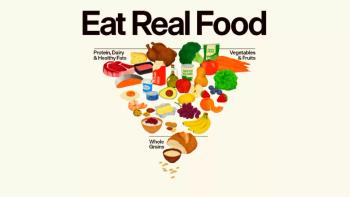
Editorial: Knowledge is power
What the Human Genome Project will mean for pediatrics.
EDITORIAL
Knowledge is power
There was a time when genetic diseases were almost exclusively the province of pediatrics. Most conditions ascribed to genetic defects were recognized in infancy or childhood, and many of them resulted in shortened life expectancy. Even then, however, we understood that genes determine many aspects of health and disease. Our careful attention to family history showed that we knew diabetes, heart disease, obesity, autoimmune disease, and even a propensity to develop otitis media and asthma all "run in families." We just couldn't predict the pattern of inheritance, and we certainly didn't have the tools to determine which genetically determined traits would be unmasked in which child during adulthood.
Efforts to tease out genetic determinants for cancer, diabetes, heart disease, and even behavioral traits like susceptibility to addiction have culminated in the Human Genome Project. When that project concludes sometime within this decade, medical scienceand the community pediatrician as wellis likely to have more knowledge than we know what to do with.
In this issue, Drs. Mark Johnson and Nathaniel Robin outline some of the patterns of inheritance that have been recognized as specific genes have been linked to relatively rare conditions. As exciting as these discoveries are, they do not appear to have immediate relevance to what most pediatricians do every day. Just wait; they will. Already it is possible to predict which child in some families will develop breast or colon cancer. In the near future we may be able to identify children at risk for complications of Lyme disease, so that only those children should be immunized, and to predict which child with sickle cell disease is likely to develop neurologic, renal, and cardiovascular complications and would thus benefit from bone marrow transplantation. It may even be possible to determine which teenager has a genetic predisposition to become addicted to alcohol.
How will pediatricians prepare themselves to understand the results of this kind of genetic testing? How will they interpret the results to parents and to their patients? How will they learn to make decisions about degrees of risk? We will need new language, new ways of teaching, and a much broader concept of what "genetics" means.
There's a lot of knowledge on the way. If knowledge is power, we'd better be sure we harness it for the health and future of our patients.
Julia A. McMillan, MD, Editor-in-chief of Contemporary Pediatrics, is Vice Chair, Pediatric Education, and Director, Residency Training, Johns Hopkins University School of Medicine, Baltimore.
Julia McMillan. Editorial: Knowledge is power.
Contemporary Pediatrics
2000;5:9.
Newsletter
Access practical, evidence-based guidance to support better care for our youngest patients. Join our email list for the latest clinical updates.








